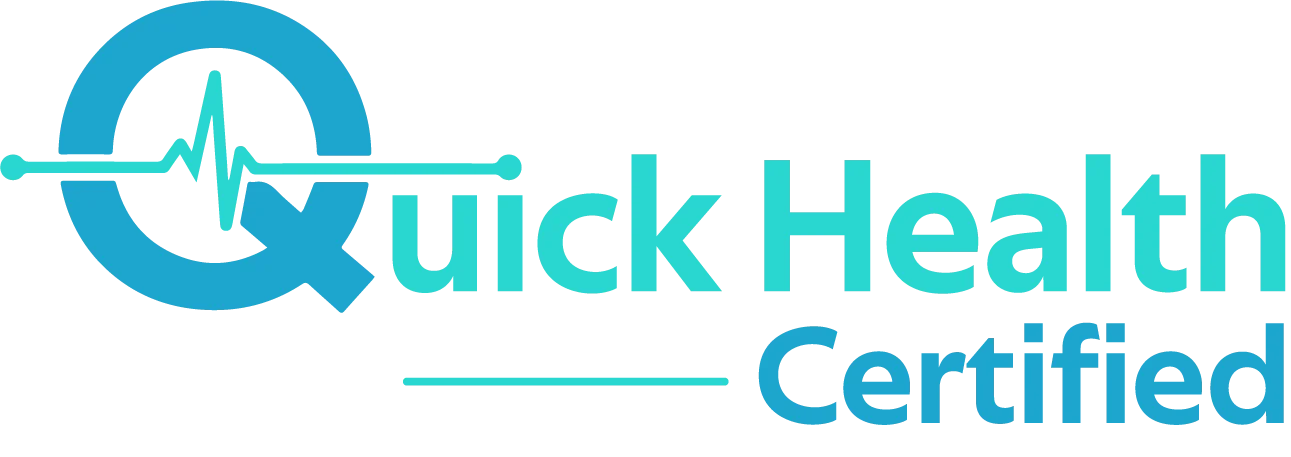Mon-Fri 9am to 6pm CST
by John Doe
31-July-2024

What is a Pharmacy Technician and What Do They Do?
Pharmacy technicians are key figures in the healthcare industry, as they work directly under the supervision of a licensed pharmacist to ensure that patients receive proper medication and care. But what is a pharmacy technician exactly?
These technicians are trained professionals who play a big role in the preparation and dispensing of drugs, managing inventory, and generally offering crucial support in a number of pharmacy operations. Their role has become much more important with increased pressure on health systems. They not only help in keeping a smooth workflow in a pharmacy, but are also indispensable for patient safety and satisfaction.
These technicians are trained professionals who play a big role in the preparation and dispensing of drugs, managing inventory, and generally offering crucial support in a number of pharmacy operations. Their role has become much more important with increased pressure on health systems. They not only help in keeping a smooth workflow in a pharmacy, but are also indispensable for patient safety and satisfaction.
Understanding the Role of Pharmacy Technician
So what is a pharmacy technician? A pharmacy technician is a trained health professional who assists the pharmacist in various tasks primarily focused on having patients receive their prescribed medications accurately and safely. They are employed by hospitals, retail pharmacies, and institutions, such as long-term care facilities—very important to the day-to-day running of a pharmacy.Some of theses day-to-day roles include
-
Medication Preparation:
The pharmacy technician organizes and packages medications in dosage form to ensure proper labeling for patient safety. -
Customer Service:
They tend to the needs of customers by responding to queries, and providing medication information, and insurance claims. -
Inventory Managemen:
The key role of a pharmacy technician is to make sure the pharmacy is well-equipped by maintaining stock levels of inventory and ordering supplies. -
Prescription Processing:
They record in the system information about the prescription, ensuring everything is accurate for dispensing. -
Supporting Pharmacists:
Pharmacy technicians enable pharmacists to concentrate on direct patient care and consultation by dealing with administrative tasks.
The key responsibilities of pharmacy technicians are more complex than they look, so we have discussed what their day-to-day responsibilities are in detail.

Daily Responsibilities of a Pharmacy Technician
They do many different things, with a variety of responsibilities often crossing over into the daily running of a pharmacy. Understanding what a pharmacy technician does highlights how these professionals contribute to healthcare on a daily basis.
Here is what Their tasks include:
- Medication Preparation
A pharmacy technician will prepare medications by measuring out dosages, mixing compounds, and labeling bottles; the goal of this section is to correctly and safely prepare prescriptions for patients.
- Customer Service
They are in contact with patients and customers. They respond to patient questions concerning medications and provide information on how their medications should be used. Good customer relations skills are greatly required since they help people understand their prescriptions and clear their concerns.
- Processing Prescriptions
After recording the information on the computer, pharmacy technicians check for potential errors. They process refills and maintain the workflow of incoming and outgoing prescriptions.
- Inventory Management
Pharmacy technicians keep records of the quantities of medication and other supplies on hand. They order new stock and maintain the inventory, keeping medications stored properly to help the pharmacy be efficient and organized.
- Administrative Tasks
They are involved in several administrative tasks, such as updating patient records, processing insurance claims, and contacting other health providers, which provide administrative support to the pharmacy.
These responsibilities provide more chances of betterment in careers for pharmacy technicians. Bigger responsibilities mean better pharmacy technician salaries and growth. This profession assures potential growth and proves very rewarding to persons interested in health sciences.
What Skills and Qualifications are Required to Become a Pharmacy Technician
To understand how to be a successful pharmacy technician, it's essential to know what a pharmacy technician is and what kind of skills or qualifications a person needs to have to be one. Since pharmacy technicians are involved in one of the most important parts of health care, the right kinds of skills and education are necessary.
There are several key requirements that a pharmacy technician needs in order to be successful in his or her job:
| Requirement | Details |
|---|---|
| Educational Background | A high school diploma or equivalent is generally required. Many employers prefer candidates with an associate degree in pharmacy technology or a related field. |
| Certification | Certification is often required. The most common certifications are the Pharmacy Technician Certification Exam (PTCE) and the Exam for Certification of Pharmacy Technicians (ExCPT). These certifications validate the technician's knowledge and skills. |
| Technical Skills | Technicians need to be proficient in preparing medications, understanding drug interactions, and using pharmacy software. |
| Attention to Detail | Accuracy is crucial in measuring and dispensing medications. Pharmacy technicians must be meticulous to ensure patient safety. |
| Communication Skills | Effective communication is key. Pharmacy technicians need to interact with patients and healthcare providers, explaining medication instructions clearly and addressing any questions. |
| Organizational Skills | Technicians must be organized to manage inventory, keep detailed records, and handle the daily operations of the pharmacy efficiently. |
Those competencies and skills are integrated into what pharmacy technicians do every day when handling medications or interacting with patients. Such standards guarantee the effective working of pharmacy technicians in the discharge of their duties and adding value to patient care.
Career Growth Opportunities for Pharmacy Technicians
There are numerous opportunities for professional growth for the pharmacy technician. Understanding what a pharmacy technician is helps in identifying potential paths for advancement. In fact, as pharmacy technicians gain experience, they are open to various options for advancing their careers and increasing their earning potential.
Some Career Pathways
There are also supervisory or management positions available to pharmacy technicians. The lead technician or sometimes the pharmacy manager may supervise other staff and run the operations of the pharmacy. This usually results in higher salaries and added responsibilities.
Further Education and Certification
Advanced education and additional certifications can lead to many more opportunities in the field. For example, a technician can get certification in sterile compounding or medication therapy management to make their life easier by achieving some sort of specific competency for better jobs or working in specialized institutions like hospitals and research institutes.
Specialized Roles
Technicians who receive additional education might work in more specialized positions. For example, as clinical pharmacy technicians or nuclear pharmacy technicians. These positions require working closely with pharmacists in specialized care or handling radioactive medications.
Being aware of what pharmacy technicians do and what options offer career development will aid professionals in making wiser career decisions. Pharmacy technicians have a rewarding career due to the many options to progress within the career path.

Some Challenges and Rewards of Being a Pharmacy Technician
A pharmacy technician's work comes with its challenges and rewards. Understanding what a pharmacy technician is helps them appreciate both the difficulties they face and the satisfaction they get from their work.
Common Challenges Pharmacy Technician Might Face
- High Responsibility: Pharmacy technicians handle drugs. This calls for high levels of precision and attention to detail. The results of any mistake can be severe.
- Fast-Paced Environment: The busy nature of the pharmacy may be demanding for a pharmacy tech because there is always a need for fast and efficient management.
- Difficult Customers: Like many other customer-facing jobs, some interactions may turn sour due to stressed or unwell patients.
- Physical Demands: Much of the time, the work requires standing for long periods, which is physically very exhausting.
Rewards and Job Satisfaction
- Making a Difference: Pharmacy technicians contribute largely to patient care through the preparation and dispensation of medications correctly.
- Job Stability: The health field represents a professional field that is stable because there is a continuous demand for pharmacy technicians.
- Opportunities for Advancement:With experience and further education, technicians can move into positions with greater responsibilities or specialize in areas of his or her interest
- Personal Fulfillment: The ability to help people manage their health and well-being provides a sense of personal satisfaction that is rewarding in itself.
Though it could have a lot of hurdles, the rewards that come with being a pharmacy technician give it a really fulfilling nature as a career for those willing to assist other people and work in the medical field.
Conclusion
So, by now, we believe you’ve understood the following: what is a pharmacy technician, the daily day-to-day tasks of a pharmacy technician, the needed skills, problems, and rewards relating to the job.
Pharmacy techs significantly contribute to the work of pharmacists by improving the care of patients and making them indispensable in any healthcare setting.
Their commitment assures the smooth operation of pharmacies and guarantees the well-being of the patients.
FAQs
Let's Meet
Please provide us your email address and we'll connect you with a member of our admission team.


 Chat
Chat